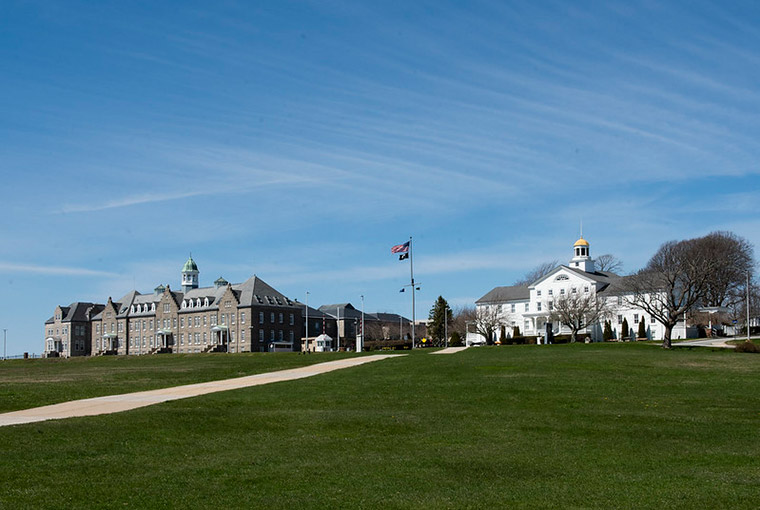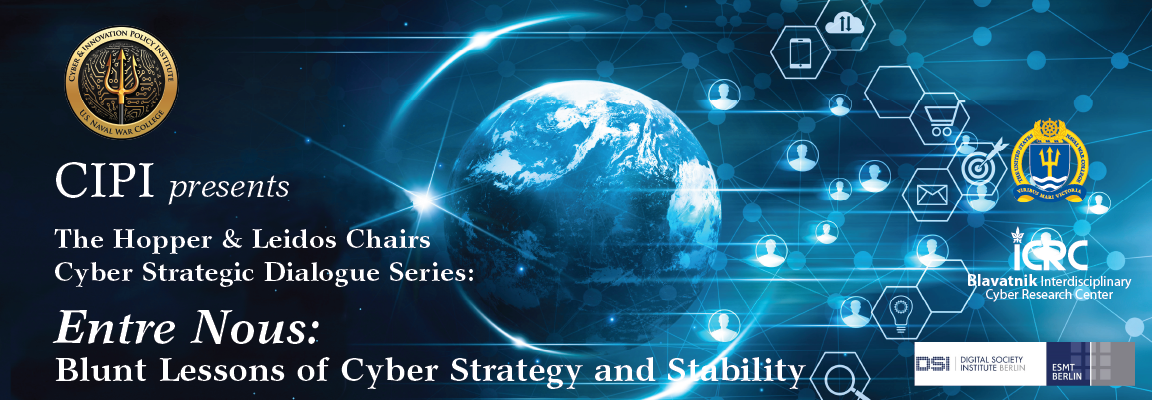Naval War College Hosts First ‘Entre Nous’ Cyber Strategy and Stability Workshop Series


NEWPORT, RI - The Naval War College’s Grace Hopper Chair of Cyber Security and the Leidos Chair of Future Warfare Studies, housed in the Cyber and Innovation Policy Institute and Institute of Future Warfare Studies, hosted the first annual Cyber Strategic Dialogue Series’ workshop entitled “Entre Nous: Blunt Lesson of Cyber Strategy and Stability” Nov. 17-19. The workshop gathered a distinguished group of senior academic and practitioner cyber and security experts to spend three half-day virtual sessions collaboratively distilling uncommon, often buried lessons for national cyber operations and strategy.
“This meeting begins our effort to build on the legacy of NWC’s predecessor, the Center for Cyber Conflict Studies (C3S), in developing insightful and creative workshops among a selected group of established thinkers and doers,” said Professor Sam J. Tangredi, NWC Leidos Chair.
This initial workshop’s goal was to compile neglected or unimplemented lessons for cyber defense strategies, structures and future operations given the preceding decade’s significant cyber conflict with U.S. adversaries. Six panels with keynote speakers and presenters sought to further understand lessons learned in national cyber defense resilience, cyber forward defense, vulnerabilities in emerging technologies, cyber operational technology abuse opportunities, democratic states collective responses and future strategic elements for democratic state defense and wellbeing.
The workshop included 45 participants who have had significant cyber conflict experience, including a former Joint Chief’s of Staff vice chairman, two generals, one admiral, two vice admirals, two rear admirals, one serving ambassador and four senior executive staff.
"We had enthusiastic participation by very experienced, former cyber commanders and current thought leaders. Although virtual, the workshop provided the collegiality of a small face-to-face senior expert meeting with considerable depth and shared insights,” said Professor Chris Demchak, NWC Hopper Chair. “The participants agreed to reconvene roughly quarterly to discuss topics in greater depth as an expert seminar.”
According to Demchak, the workshop findings are expected to be published in the next few months with an unclassified version posted here. In addition, there is now underway an edited book project building on the discussions of unlearned cyber lessons over the past decade.
The purpose of the Cyber Strategy Dialogue series is to bring together former leaders of the cyber defense community and current academics to systematically discuss the effects of a changing, less westernized global environment for U.S. and allied national cyber strategies and leadership with particular attention to the less obvious or even neglected lessons encountered across strategic models of cyber defense over the past ten years.
For more information about the Cyber and Innovative Policy Institute, please visit here: https://usnwc.edu/Research-and-Wargaming/Research-Centers/Cyber-and-Innovation-Policy-Institute. For the Institute for Future Warfare Studies, please visit here: https://usnwc.edu/Research-and-Wargaming/Research-Centers/Institute-for-Future-Warfare-Studies.
The Digital Society Institute of the European School of Management and Technology, Berlin, and the Blavatnik Interdisciplinary Cyber Research Center of Tel Aviv University also participated as cohosts in the workshop.
